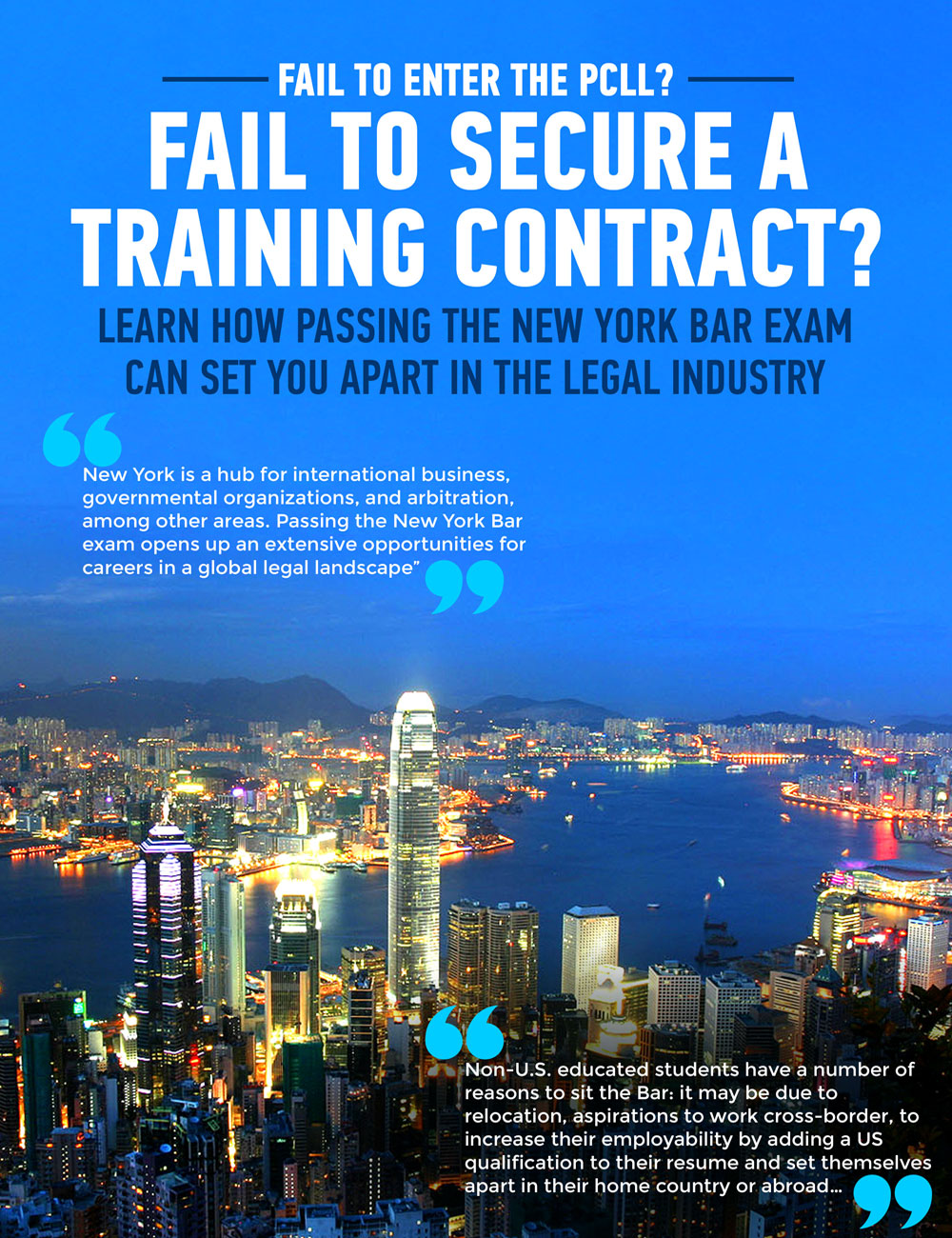
HONG KONG LEGAL LANDSCAPE: DO’S AND DON’TS FOR STUDENTS THAT FAIL TO ENTER PCLL OR FAIL TO OBTAIN A TRAINING CONTRACT
The PCLL has taken an increasingly robust approach to admit students locally and from abroad. Students often mistakenly assume that they will get into PCLL, and as a result, do not start preparing at an early stage. Proper preparation with Asia Bar Review at an early stage is, in fact, a highly effective way to maximize your career options. In this article, we set out some do’s and don’ts for students who do not get into PCLL or do not have a training contract.
The PCLL programs continue to take a more robust approach to students’ admission. The idea that a degree in law must lead to practice as a lawyer is rather old-fashioned but has persisted in Hong Kong longer than elsewhere. Legal education allows students to enter an array of professions: business, government, finance, technology, and consultancy. However, students in Hong Kong tend to stay within the legal profession. At the same time, over the past years, with a third law school (Chinese University of Hong Kong), expanded numbers of budding lawyers, more people studying on the part-time law courses offered by HKU’s School of Professional and Continuing Education (SPACE) and more overseas trained law students returning to Hong Kong. The increasing supply of lawyers flooded the Hong Kong legal market.
Don’t assume you are safe if you obtain a second upper class honor
The capacity of the law schools to create PCLL places has not been able to keep pace with the increasing supply of legal graduates. The total number of PCLL applicants was between 1,210 and 1,322, and the total number of PCLL students admitted by the three law schools was between 608 and 650. Roughly, in each of these three years, the admission rate was 1 in 2, which yielded a 50 percent success rate.1 In 2013, HKU alone rejected 10 applicants with upper second class degrees from UK universities. Many believe that the only avenue to enter into the legal profession in Hong Kong is to obtain the PCLL. This is a huge mistake. Entering the PCLL is only the first step into the legal profession in Hong Kong. Following that, would be the vicious war for a training contract. There are alternative routes into the Hong Kong legal profession. Many decided to take the New York bar exam or other overseas licenses, and after they gain an experience of practice overseas they can return to Hong Kong and take the Overseas Lawyers Qualification Examination or work as a Registered Foreign Lawyer. This allows flexibility and marketability. The New York bar qualification allows you to work anywhere in the world, since US law has extraterritorial effects. Just to name a few: the USA Patriot Act, Foreign Corruption Practice Act (FCPA), Securities Regulations (namely Reg S, Rule 144A), Foreign Account Tax Compliance Act (FATCA), Dodd-Frank Act. Take the FATCA as an example — last year, 80% of the U.S.’s EB-5 investment-for-immigration visas were issued to Chinese nationals. Globally, millions of people have green cards that subject them to U.S. tax rules- yet only a few hundred thousand file required tax or disclosure forms annually. The new rules will come as a particular surprise to Chinese because taxes are handled so differently there. Most Chinese have their income taxes deducted from their payrolls, and there is no annual reporting system by individuals, as there is in the U.S. FATCA could affect both U.S. citizens and green-card holders who are trying to hide their wealth in China. The penalties for failure to report one’s overseas bank accounts can be as high as 50% of the amount in the account at the time of the violation, plus jail time.2 The new law creates job opportunities for US qualified lawyers with Chinese language abilities, because potentially there will be more mainlanders seeking US tax advice.
Do involve in Asia Bar Review at an early stage.
The time for students to prepare their career begins with their legal studies, not with the receipt of rejection of PCLL programs, or emails of rejections from law firms. Once the PCLL programs have completed their evaluation and have decided to reject you, your ability to successfully obtain a training contract has already been limited. In the absence of new and compelling items on your resume, it is more difficult to persuade the PCLL programs to re-consider your application from a different perspective.
Do prepare.
The importance of preparation in conjunction with Asia Bar Review cannot be under look, particularly in this ever changing society. Most practitioners in Hong Kong think that there are too many lawyers. Some believe an additional entrance examination after the PCLL will guard the gate, and the market will decide who shall survive. Others believe the whole PCLL/traineeship route is just ridiculous and a waste of time. Why not take the New York bar exam and work as a foreign registered lawyer, or work your way through the Overseas Lawyers Qualification Exam (OLQE).The most important role that Asia Bar Review can play is to objectively assist clients to pass the foreign evaluation, prepare for the New York and California bar exam and assist with the admission. Some would laugh and say that taking an exam would allow me to admit to US? Correct, there are just no PCLL and traineeship to gain the world’s most prestigious qualification — the New York Bar license.

